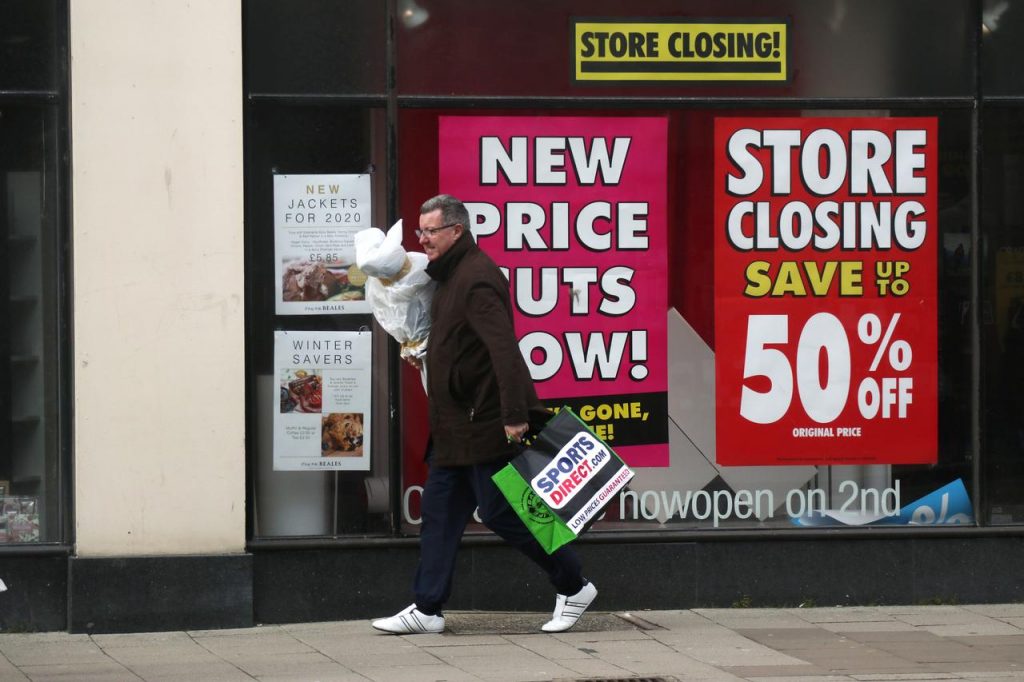British retailers cut the prices of non-food items by the most since at least 2006 this month as they try to shift stock that they are struggling to sell due to the coronavirus, industry data showed on Wednesday.
After figures on Tuesday showed the biggest fall in sales since December 2008, the data from the British Retail Consortium added to signs of the damage to the sector from the closure of non-essential stores to slow the spread of COVID-19.
Non-food prices in April were 3.7% lower than a year before, the sharpest drop since the survey began in 2006, the BRC said.
“With lockdown effectively closing the high street, non-food retailers are reliant on online sales and prices have fallen as they look to sell stock,” said Mike Watkins, head of retailer and business insight at market research firm Nielsen, which sponsors the survey.
Clothing, footwear and furniture saw the biggest discounts, the BRC added.
By contrast, food price inflation rose to its highest since June 2019 at 1.8% in April, up from 1.1% the month before, as supermarkets scrapped sales promotions to reduce supply shortages.
Shop prices overall fell by 1.7%, the largest decline since January 2017.
BoE officials have said they expect inflation to fall as the crisis hits demand.
Deputy Governor Ben Broadbent said last week he expected inflation to sink below 1% in the coming months, less than half the BoE’s 2% target, pushed down by tumbling global oil prices as well as the coronavirus impact on consumption.


